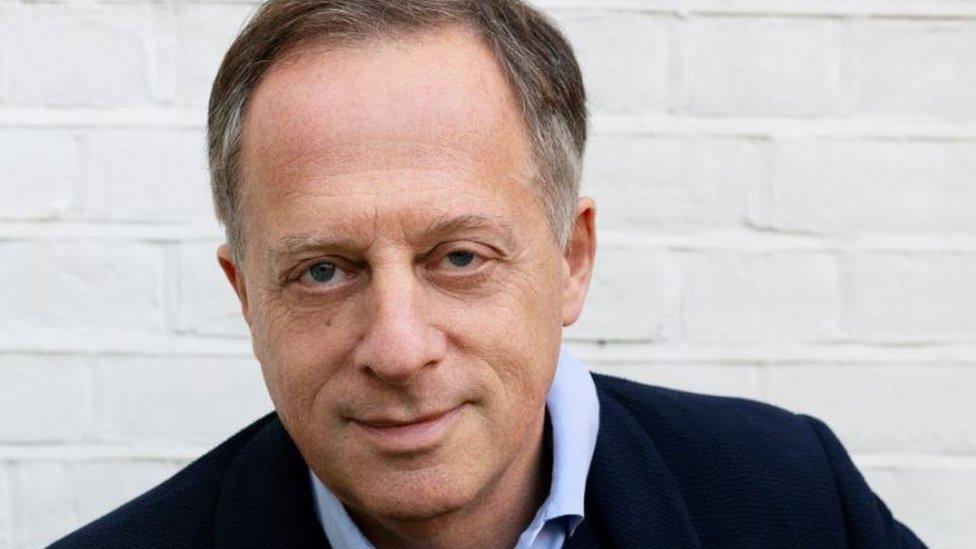Richard Sharp: PM should not appoint BBC chair, says David Dimbleby
- Published
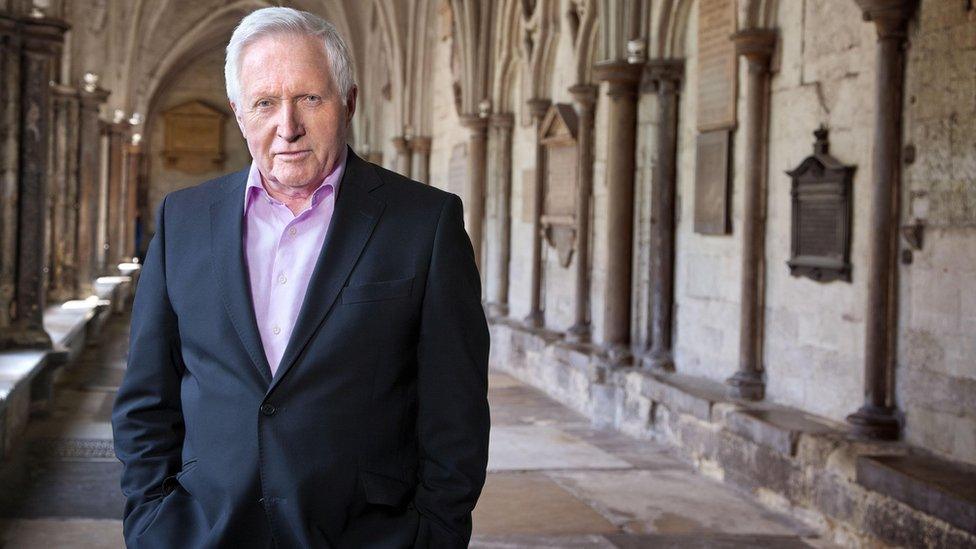
Veteran broadcaster David Dimbleby has said the BBC chairman should not be decided by the prime minister, following Richard Sharp's resignation.
Mr Dimbleby called for a "cross party" public commission to make the final recommendation.
Mr Sharp resigned after breaking rules over dealings with ex-PM Boris Johnson before his appointment as BBC chair.
The role is currently decided through a "fair and open competition", but the PM ultimately has the final say.
Speaking to the BBC's Today programme, Mr Dimbleby - who has worked for the BBC since the 1960s and has twice applied for the role of chairman - ruled himself out of becoming Mr Sharp's replacement.
He called for a bipartisan board "made up of all political parties" to decide on a person to run the BBC who "sets their politics to one side".
He said the current process "creates suspicion about the role of a prime minister", adding that a new process of appointment was important to ensuring the "subjectivity ... balance and fairness" of the BBC.
Match of the Day presenter Gary Lineker, who last month was at the centre of an impartiality row at the BBC, said on Friday, external that the corporation's chairman "should not be selected by the government of the day. Not now, not ever".
Damian Green, acting chair of the Commons culture, media and sport committee, said there was a need to restore faith in the system used to appoint the BBC chair.
"I would hope and expect that when we come to … appointing the next chair of the BBC, that everyone does it properly … that everyone reveals any potential conflict of interest to the interview panel and to us as a select committee," he said, adding that such a process would "restore faith in the system".
Mr Green also said he was confident that Prime Minister Rishi Sunak would take the appointment for Mr Sharp's replacement "perfectly seriously".
According to the Broadcasting Royal Charter, external, the appointment must only be made following "a fair and open competition", and the chair can only be appointed or sacked by the culture secretary - who is advised by a government-appointed panel. However, as the head of government, it is ultimately the prime minister who has the final say.
The BBC's director general, who has ultimate editorial control over the organisation, does not have the power to remove them.
Mr Sharp resigned as BBC chairman on Friday after a report found he had failed to disclose two "potential perceived" conflicts of interest ahead of his appointment.
The first was telling Mr Johnson - who was then prime minister - that he wished to apply for the role before submitting his application.
The second related to his involvement in the facilitation of a loan guarantee for the former prime minister.
The report notes that Mr Sharp does not accept the first conclusion, but he has apologised for the second, although he described it as "entirely inadvertent".
Watch: Ros Atkins on... Richard Sharp and Boris Johnson loan row
In his resignation statement, Mr Sharp said that, while he maintained that "the breach was inadvertent and not material", he was standing down because "it is right to prioritise the interests of the BBC".
He will remain in post until a successor is appointed in June.
Speaking to the BBC on Friday, Mr Sunak said he had not seen the report, and that it was right to turn to the "established" appointments process regarding the next chair of the BBC.
Labour's shadow culture secretary Lucy Powell said the BBC was "far too important" for the government to appoint its "mates" to its board and to the role of chairman.
Related topics
- Published28 April 2023
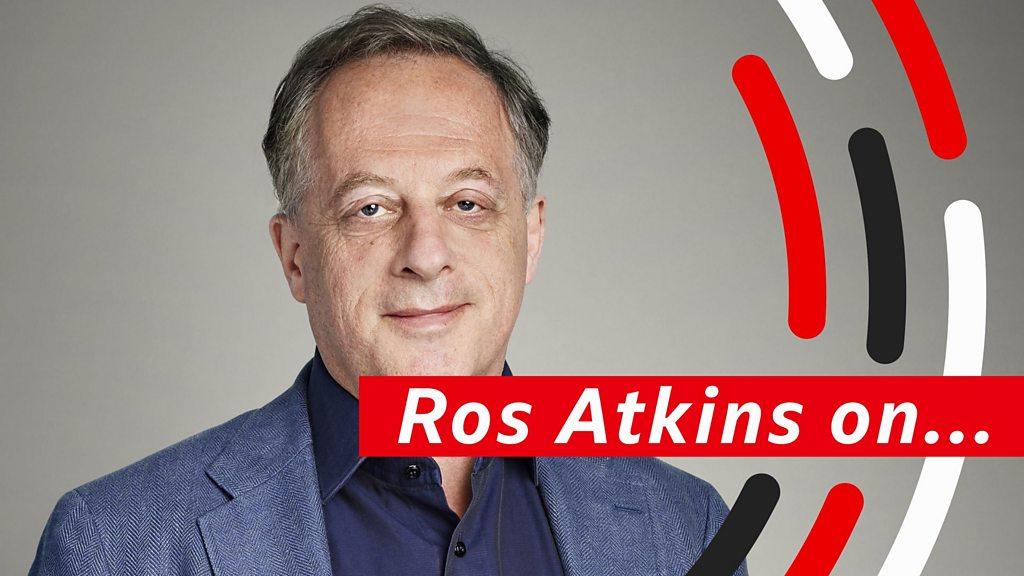
- Published28 April 2023
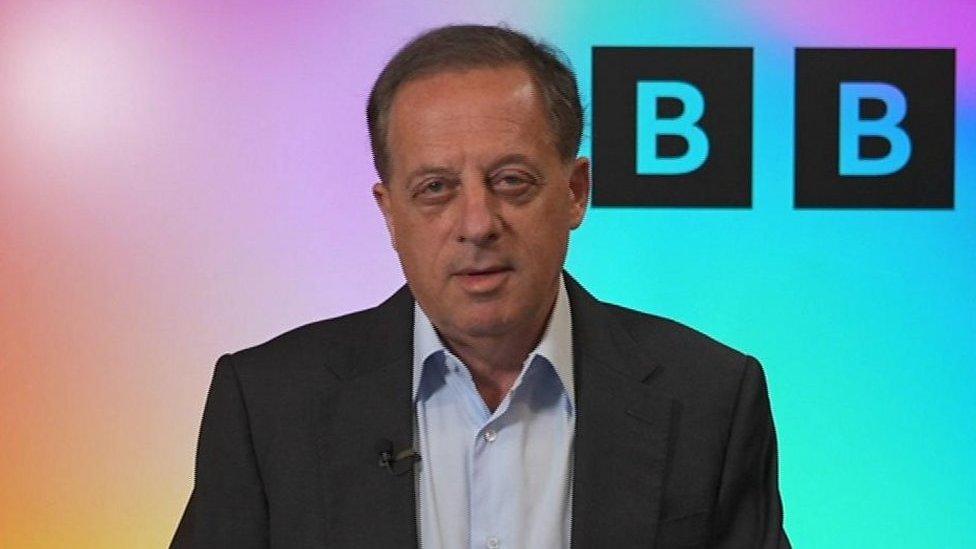
- Published28 April 2023
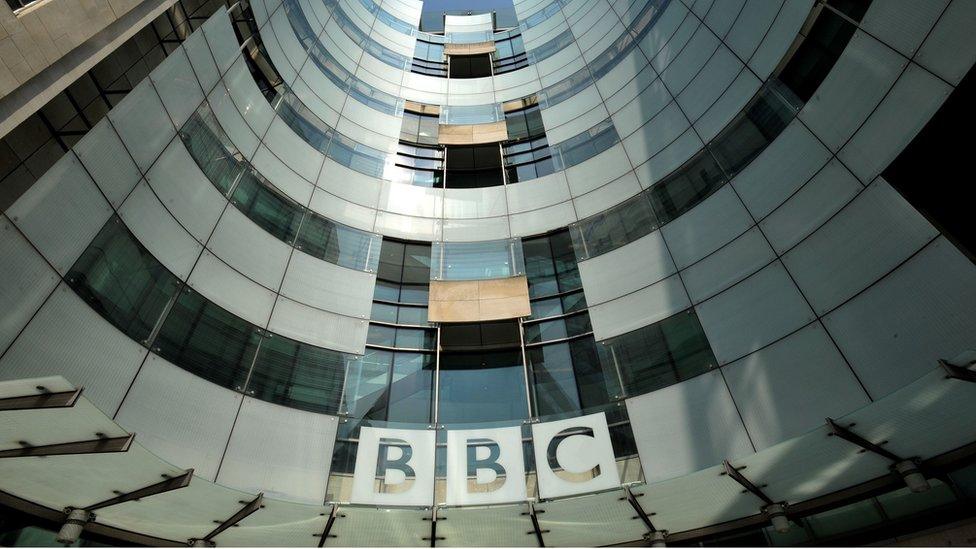
- Published28 April 2023
